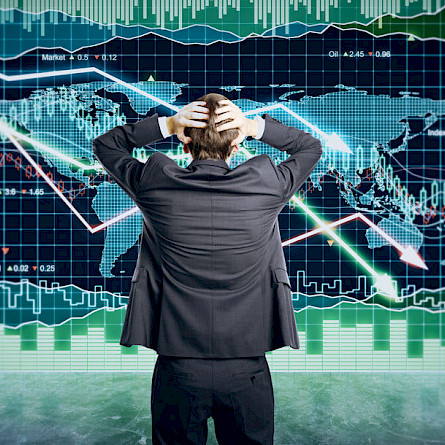Periods of great uncertainty such as the one we are going through make us realize how investors are subject to countless factors and variables that can greatly influence the value of their portfolio and over which they have absolutely no control.
I am thinking, among other things, of what will happen in Ukraine and Russia. Will the conflict escalate or are we close to a resolution between the two countries? What will be the economic impact of the conflict? We saw the major impact it has had on the prices of many commodities, starting with oil, but also on the prices of several metals and on cereals. This is without considering the problems caused by the conflict for transport and logistics in Europe. The situation is likely to exacerbate the already high inflation in the coming months.
And what about interest rates? Will the U.S. Federal Reserve slow the pace of its key rate hikes in the coming months due to the war and the economic slowdown it could cause across the world?
And who can really say what the medium-term impacts of this conflict will be? Will it accelerate the movement towards renewable energies? Or on the contrary, will Canada and the United States choose to invest more in their oil production to free themselves even more from their reliance on other countries and to help Europe reduce its dependence on Russian gas and oil?
And how will stock markets react to all this worry and highly volatile variables over the next few months?
In my opinion, it would take a very special person to answer these questions with confidence.
It’s definitely not me. In fact, I believe it is always a serious mistake for the long-term investor to attempt to make economic or geopolitical forecasts and invest based on them.
An investor should focus exclusively on the few factors that he controls and ignore everything else. What are these factors?
The construction of your portfolio.
The investor controls what he invests in and how his portfolio is constructed. He must first ensure that his allocation between the various asset classes (mainly equities and bonds) is adequate and corresponds to his investor profile. Secondly, he must ensure that the portfolio is well diversified.
That said, this is an exercise that should be done when stock markets are relatively calm and not in the midst of a sharp market correction.
The choice of stocks.
Once you are satisfied with the construction of your portfolio, you can focus on each of the securities that make it up.
For our part, we regularly assess each of the securities we hold in our portfolio as objectively as possible. Does the situation in Europe have an impact on some of these stocks? Do our companies make significant revenues in Ukraine or Russia? Are our companies able to counter inflation by raising their prices? Are some of our companies too indebted and could they experience financial difficulties in the event of a prolonged war? Does war increase the risks for some of our businesses? Are any of our companies overpriced relative to our ratings? Have others become attractive buys with the recent market slump?
In tennis, you can’t control the elements like the wind, the sun, or the heat. We can’t do much to control our opponent either. The only thing we can do is to focus on our game, the strategy we adopt, and adjust according to the situation. It’s the same with investing.





